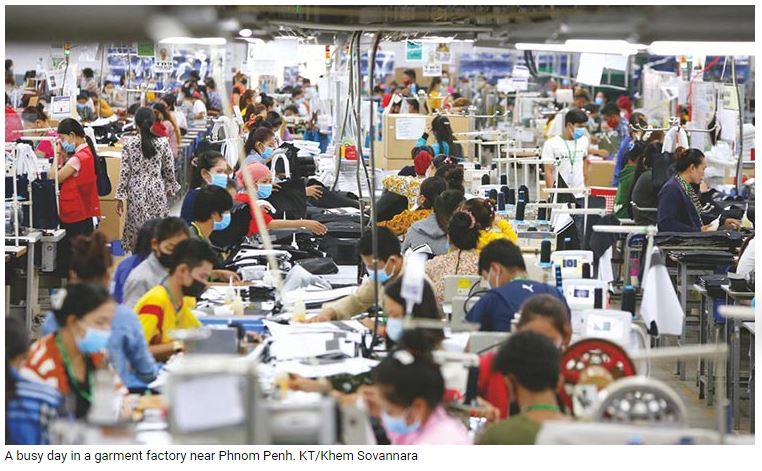Cambodia: Textile suppliers cut energy and water consumption, courtesy IFC program
Despite the challenges of Covid-19, local apparel and textile suppliers have cut energy and water consumption through a range of sustainable solutions under an IFC program.
The program aims at increasing resource efficiency and reducing operating costs.
As part of the IFC’s Cambodia Improvement Program, ten suppliers with cut-and-sew and garment-washing operations implemented resource efficiency measures in 2019 and 2020, saving energy and water consumption by 18 percent and 29 percent respectively, a press release said.
Over a period of 22 months, the participating manufacturers implemented a combination of low-cost and more complex resource efficiency initiatives, such as preventive measures to avoid the steam loss or using highly efficient washing systems.
So far about 60 percent of the recommendations have been implemented. Once fully adopted, the interventions could collectively reduce the annual consumption of energy by 29 percent, water by 44 percent, and greenhouse gas (GHG) emissions by 25 percent as compared with the numbers in 2018, the release said.
Cambodia’s garment industry employs more than 750,000 workers—mostly women—contributing to more than a third of the country’s gross domestic product. With $11.3 billion in garment export in 2021, the sector continues to be the largest exporter for the country. However, high energy costs and poor productivity impact Cambodia’s competitiveness in the region.
“High energy costs and poor productivity have impacted the competitiveness of Cambodia’s garment industry,” said Rana Karadsheh-Haddad, IFC Asia Pacific Regional Director for Manufacturing, Agribusiness and Services.
“It’s why IFC has been supporting the greening of global textile value chains at the local level to promote sustainable private sector growth and improve the competitiveness of local manufacturers. Building on these positive results, IFC will leverage its partnerships with leading global brands to drive sustainability in Cambodia’s garment sector, boost the recovery and build resilience.”
Local suppliers with better sustainability performance will get pricing incentives from IFC’s Global Trade Supplier Finance (GTSF) program, which provides short-term financing to suppliers exporting to international buyers, by discounting invoices once they are approved by the buyer. In 2021, GTSF program provided $276 million to Cambodian suppliers.
IFC’s Cambodia Improvement Program (CIP) has been implemented since 2019 with support from Korea’s Ministry of Economic and Finance. The aim is to increase competitiveness, productivity, and sustainable growth of the garment sector, contributing to the achievement of Cambodia’s national target of 40 percent reduction in its GHG by 2030. CIP is part of IFC’s broader effort to decarbonise manufacturing industries across Asia through sharing knowledge and expertise on resource efficiency, renewable energy, and the circular economy. IFC has implemented similar programs in Bangladesh, Pakistan, and Vietnam.
Source: https://www.khmertimeskh.com/501054343/textile-suppliers-cut-energy-and-water-consumption-courtesy-ifc-program/


 Thailand
Thailand




